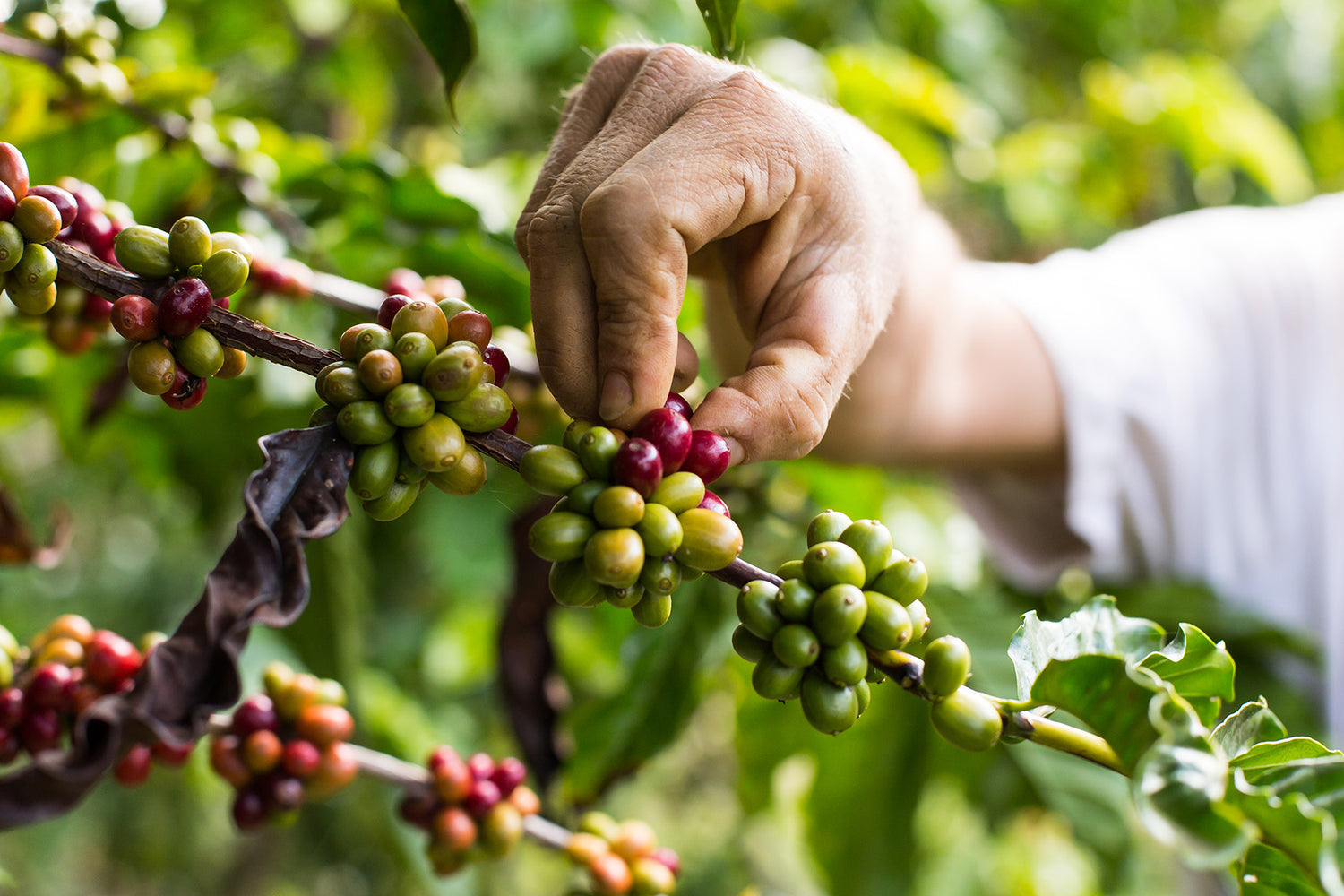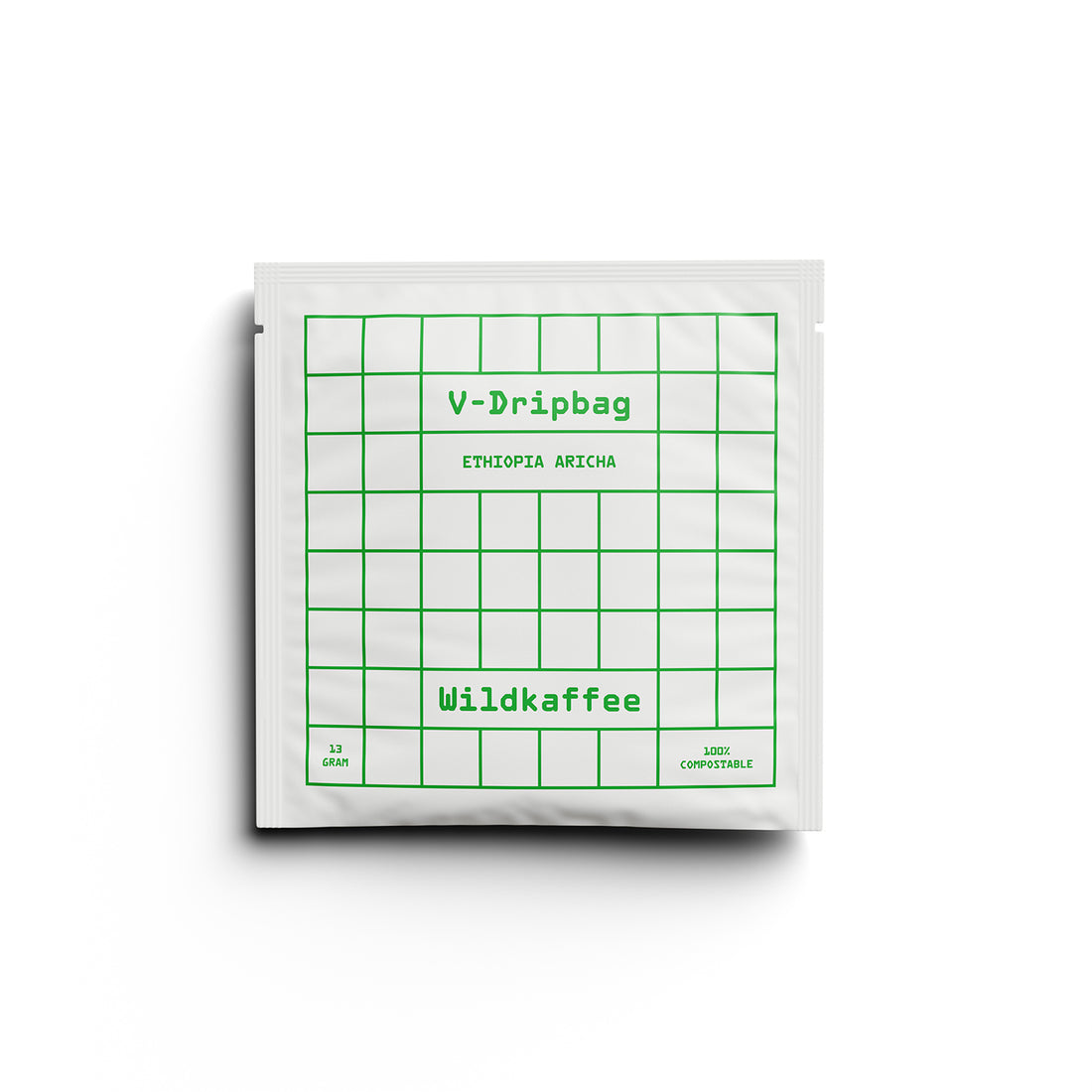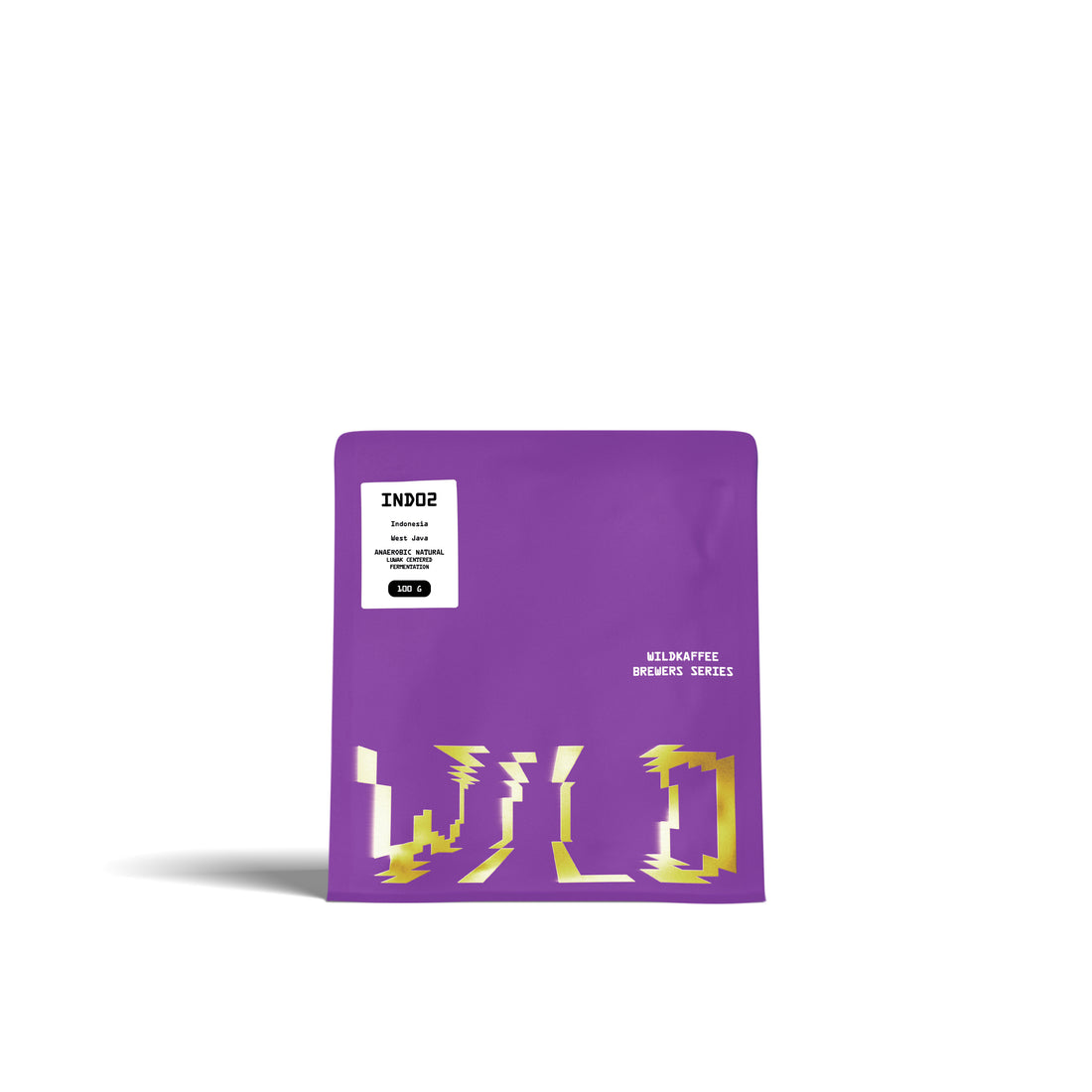What does Fair Trade mean?
Fair Trade is a well-known, certified system with strict guidelines. Its goal is to guarantee smallholder farmers fair prices, social security, and minimum environmental standards. This applies not only to coffee farmers; Fair Trade also applies to many other producers of natural products.
The real question, however, is why something like Fair Trade is needed. Unfortunately, this is because coffee is still a commodity traded on the stock exchange. This leads to speculation and often to dumping prices. Therefore, in many places, coffee is unfortunately still grown for quantity rather than quality. And this has negative consequences, especially for the producers and workers on the coffee plantations: child labor, toxic pesticides and fertilizers, inadequate equipment, poor pay, and exploitation are just some of the attributes behind exchange-traded coffee. Fair Trade, in contrast, has been tackling this since the 1970s.
Core principles of Fair Trade
- Minimum price for green coffee (even with falling world market prices)
- Rewards for social projects in the community
- Cooperative structure as a prerequisite
- Prohibition of child labor & promotion of environmentally friendly farming methods
Advantages

- Reliable security for coffee farmers
- Transparent standards and external controls
- Globally recognized seal (e.g. Fairtrade International)
Points of criticism
- Complex and cost-intensive certification
- Not all farmers (e.g. individual farms) can participate
- Fixed standards can offer little flexibility
Disadvantages of Fair Trade
One thing about Fair Trade is that it's quite opaque. In addition to the standard Fair Trade seal, there are seven other seals that originate from Fair Trade. The fairly traded ingredients contained in these seals also vary, making them difficult for consumers to identify, despite the different seals.
Unfortunately, the exact system and pricing of Fairtrade are also being exploited by farmers to sell cheaper, slightly lower-quality coffee with the Fairtrade markup, while the higher-quality coffee is sold on the open market. It's not at all unlikely that this inferior coffee then ends up in German supermarkets.
And the biggest problem with Fair Trade is certification. Every coffee farmer who wants to sell Fair Trade coffee must be certified. The application fee alone is €525, followed by the initial certification for €2,300. These fees are then charged annually. These sums are a considerable amount of money, especially for coffee farmers in emerging markets, and often unaffordable.
What is Direct Trade ?
Direct Trade isn't a certified system, but rather an approach in which roasters work directly with coffee farmers—without middlemen or large certifying agencies. It's a collaboration between roasters and coffee farmers. They get to know each other, visit each other, and work together to improve the coffee in order to achieve higher prices. This means that, above all, the producers receive more money for their product, allowing them to invest more in their farms and cultivation methods. Furthermore, no one needs to fear not being able to feed their families. We have been working with many partner producers for more than a decade.
Features of Direct Trade
- Direct relationships between roasters and producers
- Pricing independent of the global market
- High quality standards (often specialty coffee)
- Focus on long-term partnerships
Advantages
- Higher price for farmers possible
- Transparency through personal relationships
- Focus on quality and sustainability
challenges
- No uniform standards – every roaster defines Direct Trade differently
- Trust is key, control is difficult
- No official seal, therefore risk of greenwashing
Unfortunately, direct trading also carries risks
While there are rarely any malicious intentions in direct trade (everyone only wants the best), negative situations can still arise. For example, a harvest may not deliver the promised quality (coffee is a natural product and subject to fluctuations). The buyer could then either demand a lower price or refuse to accept the product. For the producer, this means they must seek other sales channels to avoid lost revenue. Unfortunately, direct trade is sometimes used as a marketing buzzword, without the companies actually engaging in direct trade.
Other seals for fair or sustainable coffee
In addition to Fair Trade and Direct Trade, there are many other labels that have more or less the same goal: improving social conditions for producers as well as sustainability and ecologically produced products.
Rainforest Alliance

- Combines ecological, social and economic sustainability
- Farmers must comply with environmental standards, pay fair wages and not allow child labor
- Focus on biodiversity and climate protection
UTZ Certified (part of Rainforest Alliance since 2018)
- Emphasizes traceability, better farming practices and social standards
- Goal: Professionalization of agriculture
Organic/ecological seal (e.g. EU organic, USDA Organic)
- Not exactly “fair”, but: No use of pesticides or genetic engineering
- Often coupled with small-scale production and sustainable cultivation
GEPA / WorldPartner
- German fair trade pioneer. While it does not award an independent seal, it sets its own strict standards
- Supports long-term trade relationships, educational projects and fair prices
SPP (Símbolo de Pequeños Productores)
- Seal specifically founded by small farmers’ cooperatives
- Only for smallholder farmers' organizations
- Very strict fairness criteria
These seals focus on different aspects – from social aspects to transparency to environmental protection. A combination of several standards is often crucial for achieving real impact.
Comparison: Direct Trade vs. Fair Trade
| CRITERION | FAIR TRADE | DIRECT TRADE |
| Certification | Yes (official seals, e.g. Fairtrade) | No (individually organized) |
| Minimum price | Yes (guaranteed base price) | No, prices are freely negotiable (but usually well above world market price |
| transparency | Formal through standards | Personal through direct relationships |
| participation | Cooperatives with access to certification | Sole proprietorships, cooperatives, small farmers, etc. |
| Quality focus | Secondary | Primary (specialty coffee) |
| Social projects | Part of the premium | Optional, depending on the roaster (for us, for example, Coffee School Project ) |

So what is “better”?
There's no one-size-fits-all best. Both models have their place and their justification:
- Fair trade is ideal for structurally weak regions where small farmers without direct market access need help.
- Direct trade works particularly well for high-quality coffee when roasters and farmers cooperate long-term. However, it's also suitable for structurally weak regions where small farmers can barely afford certification.
Tip for consumers: Look for transparent information from the roaster. Good suppliers will explain where the coffee comes from and how it was paid for—with or without a seal.
Conclusion
Direct trade and fair trade are two ways to make the global coffee trade fairer. Anyone who wants to drink sustainable coffee should look beyond the label: Transparency, origin, and fair treatment of producers are more important than the label alone. The combination of both approaches—certified safety with direct trade—could be the best long-term path. We personally see direct trade as the only right path, because certifications still cost coffee producers far too much, which further reduces their (unfortunately often already small) profits due to the higher costs.




